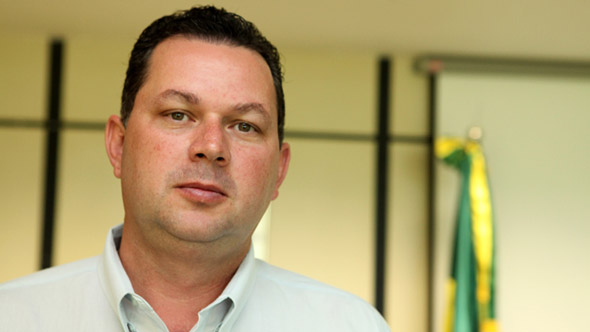Agriculture Development of District Federal
José Guilherme Tollstadius Leal, President of EMATER
The President of EMATER, José Guilherme Tollstadius Leal, talks about the role of the public company belonging to the Federal District in the agriculture sector. He also mentions the importance of agriculture in the Federal District, a region of strong rural production.
Interview with José Guilherme Tollstadius Leal, President of EMATER

Brazil has 22% of the global agricultural land. What are the perspectives for the Brazilian agriculture for 2012?
Our biggest challenge for the Brazilian agriculture in 2012 is to keep growing and, at the same time, keep working toward sustainability and environment-friendly policies.
Our biggest challenge is to keep growing and, at the same time, keep working toward sustainability and environment-friendly policies.
Last year, the Federal Government has launched the low carbon emission agricultural program that is being taken to all states. Our goal is to produce for the internal and external markets like always and, at the same time, to maintain the environmental resources. We’re also implementing strict rules regarding sanitary control of products to ensure our national and international consumers.
The mission of EMATER is to disseminate knowledge, to train farmers, their families, and rural workers on technological, organization, and management aspects of the agricultural production in order to generate employment. Can you present us with your plans? How is EMATER going to reach these goals, and how much investment is planned to achieve this?
EMATER doesn’t just work on technical assistance to farmers. We work with a non-formal education in a continuous manner.
Our biggest investment is in the training of the human capital on the field: training the farmer, his family, and the rural farmer, so that they are able to understand the technology and can gain autonomy.
We also work on another aspect: the strengthening of the social organizations; of the rural organizations. We also work in the fields of prevention, health, and environmental planning, so the rural extension has a technological assistance role but we also play an important role (a wider role) concerning the rural development. That’s why we try to strengthen organizations, so that the farmer himself can search for the benefits and public services available today.
We have implemented a rural development plant with 21 strategic goals and we’re working strongly on the rural income generation program: technological development, access to credit, insertion on the Federal Government programs, management, and environmental adequacy.
EMATER is a public company belonging to the Federal District and we don’t charge the farmer when offering our services to him. Our general budget comes from the Federal District and we are very close to the farmers thanks to the 16 offices that EMATER currently has.
What is the economic importance of agriculture for the Federal District?
We can’t look at the agriculture in the Federal District as a distinct case apart from the rest of the country. Yet around the Federal District there is a strong belt of rural agriculture production. We have some of the best averages in certain productions, particularly soya, corn, beans, and wheat. Our plan to create an agro-industry centre in Brasília is already being implemented.
Agriculture is constantly generating jobs. In some regions we even have labour shortage.
Which are your international links? Do you work with international agencies or are you looking for some kind of cooperation?
In Brazil, we have an association that is created from all the extension companies and we have a link to the Ministry of Agriculture Development of Brazil which coordinates the work of the rural extension in Brazil.
There have been cooperation requests coming from Latin America and mainly from the African countries that need to develop their agricultural production. We have been sharing our experience and helping in terms of technicians training, so that also the other countries can develop their help and support to their own farmers.